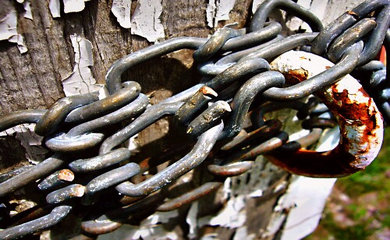If you somehow haven’t heard by now, the titular subject of the sensational (in both senses of the word) “The Jinx: The Life and Deaths of Robert Durst,” was arrested in New Orleans (registered in a hotel under a false name) on March 14th. Durst, the eldest son of NYC real estate mogul Seymour Durst, was taken into custody in connection with the 2000 hit-style murder of his close friend, the writer Susan Berman, on the eve of the HBO series’ finale.
Long a suspect in the still unsolved disappearance of his first wife Kathleen in 1982, as well as the demise of Berman – herself the daughter of a notorious figure, Davie Berman, a Las Vegas mob boss – this would actually be the second time Durst has been jailed, having been tried for the 2001 murder of his neighbor Morris Black while living incognito in Galveston, Texas (where he pretended to be a mute woman). In that case, Durst admitted to dismembering Black’s body and dumping the parts in Galveston Bay – but claimed the killing occurred in self-defense. True to the power of mega wealth and Texas justice he was acquitted. (And if all this sounds like the makings of a Hollywood movie, it is. Director Andrew Jarecki actually helmed the Durst-inspired 2010 flick “All Good Things,” which prompted its real life subject to phone up the filmmaker and offer to be interviewed. Fast forward several years and 20 hours of interviews later and you have “The Jinx.”)
But of the many expertly crafted revelations in Jarecki’s nonfiction, slow-reveal saga of psychopathy, though, the most telling occurred not during the shocking finale in which Durst may – or may not – have been unwittingly taped confessing to his crimes. No, it’s the second to last chapter of this series about a man whose proximity to wealth and privilege has most likely led him to get away with serial murder – appropriately titled “Family Values” – that steals the show. And I’m not referring to a recently discovered letter that damningly implicates Durst in Berman’s killing in episode five, but to a seemingly innocuous exchange that happens between the filmmaker and his producer Marc Smerling. To set the scene: The pair are riding in a car, on their way to confront Robert’s brother Douglas, head of The Durst Organization, who is being honored at a dinner.
“Have you ever met him before?” Smerling asks off camera.
“I’ve never met him before,” Jarecki nonchalantly replies while checking his phone. “I’ve seen him around a few social occasions.”
Yet within this barely noticed, throwaway exchange is buried a wealth (pun intended) of information, which adds a second layer of meaning to “Family Values.” Jarecki, we’re obliquely reminded, has “seen him around a few social occasions” because he himself is the son of a prominent NYC one-percenter, Henry Jarecki, a longtime philanthropist (and, according to Wikipedia, part-time resident of the British Virgin Islands, who happens to own two islands in the archipelago). And in addition to his filmmaker siblings Eugene and Nicholas, Andrew also has another brother, Thomas A. Jarecki, who is a finance executive. In other words, that rarified east coast world that shaped a probable killer is the same that shaped the filmmaker.
Indeed, this goes a long way to explaining why Robert Durst would even trust Jarecki enough to give the filmmaker so many long and winding – and damning – interviews. But in “Family Values,” Jarecki attempts to not only indict his subject, but to firmly separate himself and his own family values from that of the Dursts. (Not incidentally, this is also similar to what Eugene Jarecki accomplished with “The House I Live In,” a thorough smackdown of America’s war on drugs – and poor people – that’s grounded in the story of the Jarecki family’s live-in nanny.) Jarecki, by his own unsettling admission in the final chapter, had grown close to his subject, and in a sense his impending split from Durst is a betrayal not just to “Bob,” but also to the one-percent milieu that protects its own.
Of course, the crazy like a fox Durst had done his research on Jarecki, knows that the filmmaker understands intimately the powerful world he comes from – and how that world works. (As a middle-class friend of Durst’s disappeared wife Kathie says, “Nothing happens the way it’s supposed to happen when it comes to Bobby Durst.”) Which also leads to Durst’s biggest miscalculation – a misplaced trust in a man he regards as similar to himself. This ultimately renders chapter five of “The Jinx” a thrilling cinematic response from Jarecki, a declaration that even as power corrupts, the powerful can choose to be a force for truth and justice for the 99 percent.

